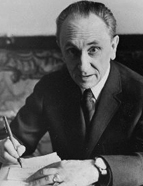

João Ameal also view ed History in an axiomatic way: as Science at the base (collection and selection of materials); Art in the arrangement of these materials; and Ethics (‘guiding, educating, a sum of experiences’) ( i dem , pp. 38-39). However, he integrated these ideas into a somewhat narrower and more functionalist perspective: for the historian, there can only be one truth , and as long as facts are approximated, probabilities are weighed up, and the reasoning is fair and methodical, one can legitimately reach a conclusion: ‘If total and absolute impartiality seems unattainable, total and absolute honesty in the consultation of sources, in the accuracy of deductions and in the interpretation of documents cannot be dispensed with. All this is a sufficient guarantee of the historian ’ s suitability and credibility’ ( i dem , p. 41).
For Ameal, historiographical subjectivity would be overcome by confronting the sources in order to arrive at the aforementioned ‘historical truth’. This truth, in his case, would be underpinned by the concern to learn the trajectory of the H istory of Portugal as a moral sequence: the retrospective idea of the nation as a great family, always with solidarity and renewed from generation to generation, with the ‘service of God and [the] will of an empire’ as the guiding thread ( No Limiar … [ On the threshold…] , pp. 38-39). Basically, the concerns he had expressed in his early works, even if nuanced, remain ed : as Chateaubriand (who Ameal quotes in more than one of his texts ) said , ‘Modern man is a traveller who lost his ways on the road; he has to return to the starting point if he wants to remember where he came from if he wants to know where he is going’ .
Bibliografia activa (selecção): Biblioteca João Paulo II, Universidade Católica Portuguesa, Espólio A. Sardinha Cartas a António Sardinha; As directrizes da nova geração. Coimbra: Lumen, 1925; A contra-revolução. Coimbra: Atlântida, 1928; A realeza de D. Miguel. Coimbra: Liv. Atlântida, 1929; A revolução da ordem. Lisboa: s.n., 1932; Panorama do nacionalismo português. Lisboa: J. Fernandes Júnior, 1932; No limiar da idade-nova: ensaios contemporâneos. Coimbra: Imp. da Universidade, 1934; Construção do Novo Estado. Porto: Livr. Tavares Martins, 1938; São Tomás de Aquino. Porto: Tavares Martins, 1938; História de Portugal. Porto: Verbo,1940; Porque escrevi a “História de Portugal”. [s.l: s.n.], 1941; Liberalismo. [S.l: s.n.], 1941; Rumo da Juventude, Lisboa, Editorial Acção, 1942; Europa e os seus fantasmas. Porto: Tavares Martins, 1945; Breve resumo da História de Portugal. Lisboa: S.N.I, 1946; A revolução tomista. Porto: Tavares Martins, 1952; O Infante Dom Henrique e o século português. Porto: s.n., 1960; Perspectivas da História. Lisboa: Livr. São Carlos, 1960; Acção dos Portugueses na Índia de1500 a 1515. Lisboa: Junta de Investigação do Ultramar, 1967; D. João VI e o Brasil. Lisboa: Academia das Ciências, Ottosgráfica, 1965; O Ocidente e Portugal. [s.l: s.n.], 1970; “O Ocidente e Portugal”, separata do Boletim da Sociedade de Geografia de Lisboa, julho-setembro, 1970, pp. 187-193; História da Europa. Lisboa: Verbo, 1982 [1961].
This work is financed by national funds through FCT - Foundation for Science and Technology, I.P, in the scope of the projects UIDB/04311/2020 and UIDP/04311/2020.
